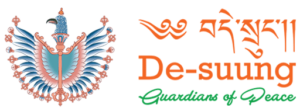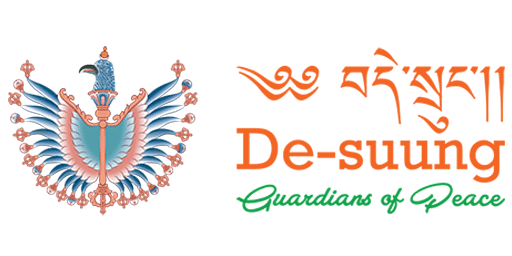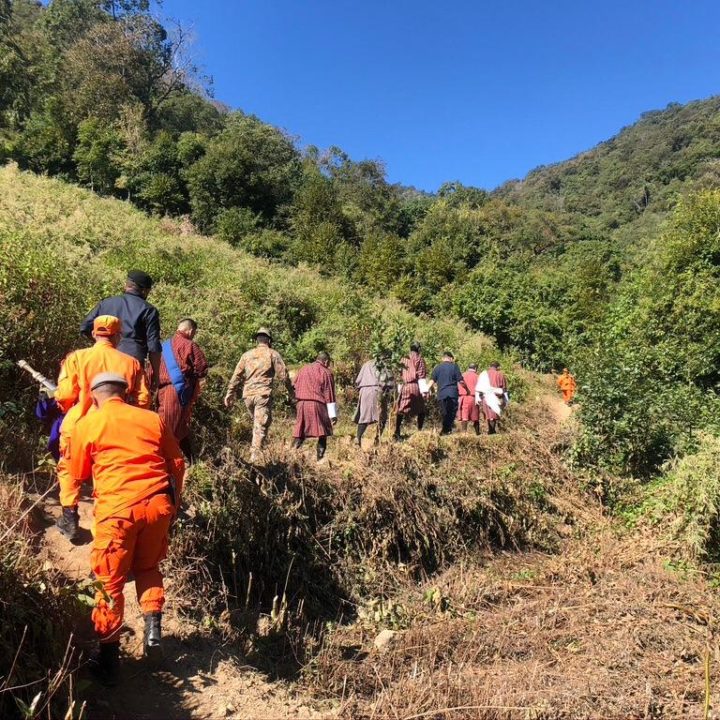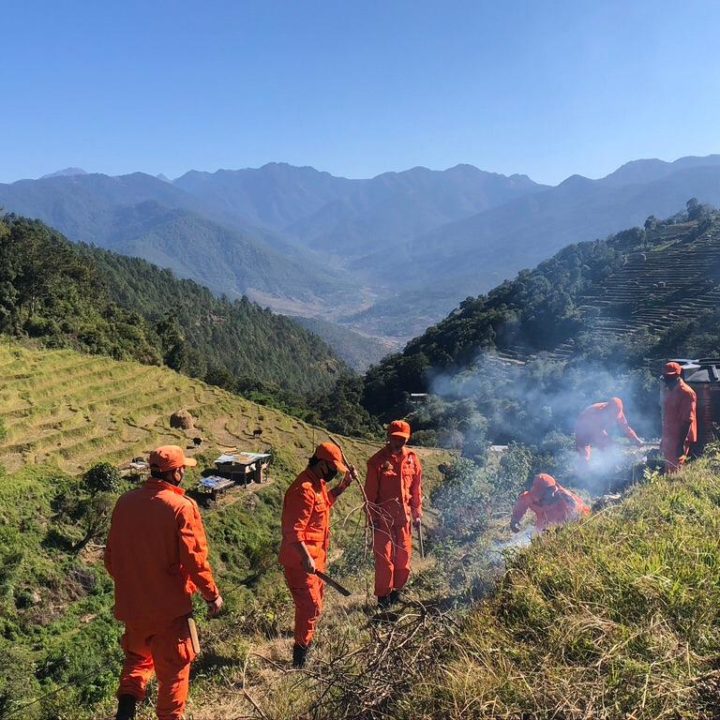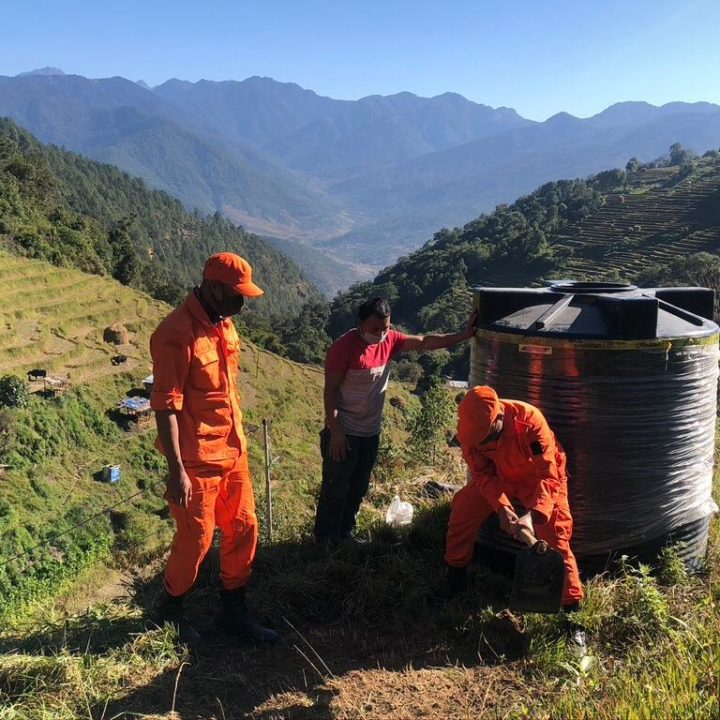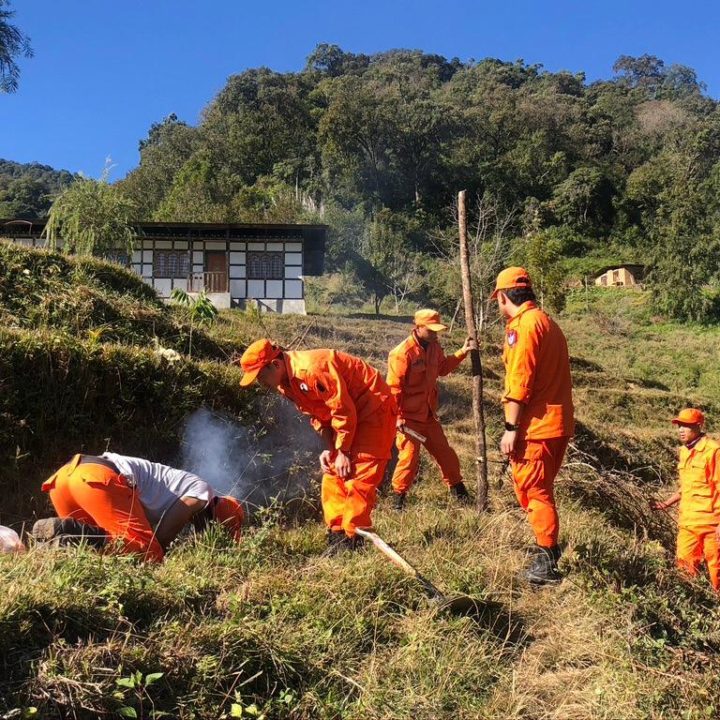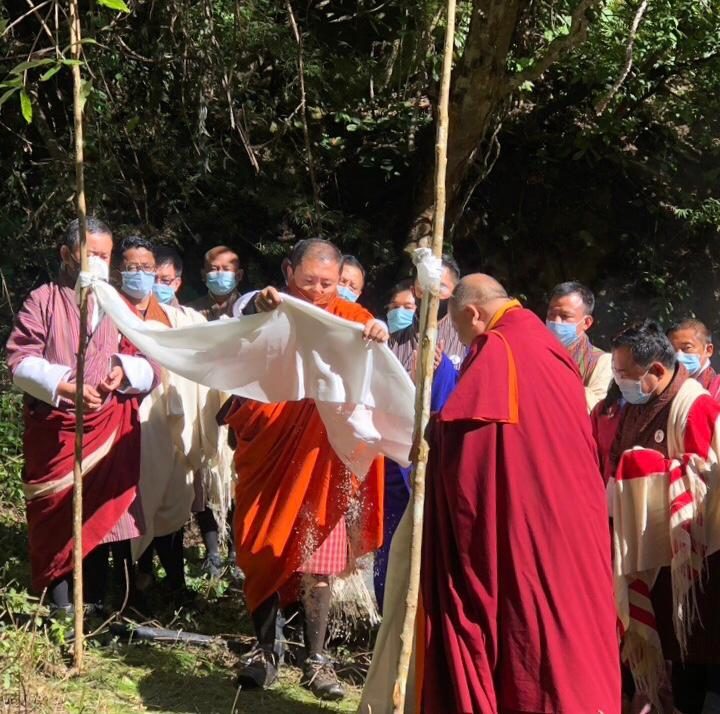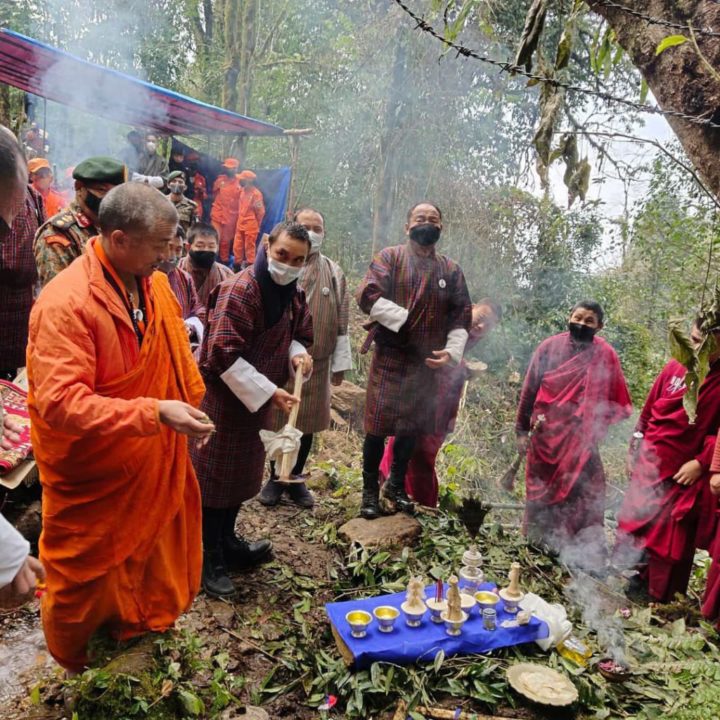Inauguration ceremony for De-suung water supply pilot project in Semjong
His Excellency Lyonchen Dasho Dr. Lotay Tshering graced the inauguration ceremony of the Semjong Integrated Water Supply Scheme in Tsirang on 26 November 2021. Officials from HMS, MoAF, MoWHS, Armed Forces, De-suung, and DHI joined the Local Government and the people of Dangreygang Chiwog under Semjong Gewog to mark the handing over of the project to the Local Government.
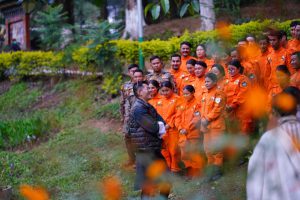
Speaking at the ceremony, Lyonchen commended the De-suups, armed forces and Dzongkhag and Gewog officials for their dedication and hard work which has translated His Majesty The King’s vision into tangible projects and transformed the lives of the people in the community. Lyonchen underscored the importance of water in our lives and urged the people to take ownership of the project. He also expressed optimism that with the various initiatives underway in the country, Bhutan could develop expertise in water management and become a center of excellence in the future.
Located in Dangreygang Chiwog, the scheme was launched, upon the command of His Majesty The King, a year ago on 25 November 2020. The Semjong Project was the second pilot project, after Guma in Punakha, to be executed under the De-suung National Service Water Project.
The successful launch of the two pilot projects paved way for the launch of a series of water projects in partnership with the RGoB’s Water Flagship Program. To date the De-suups have volunteered in several projects in 20 Dzongkhags and completed 19 water projects and 8 projects are in various stages of completion.
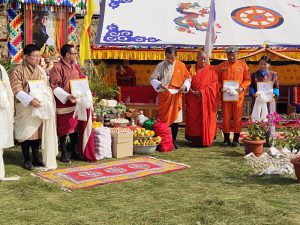
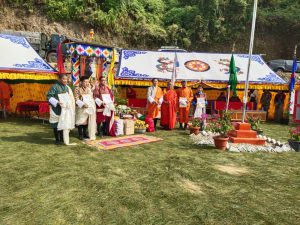
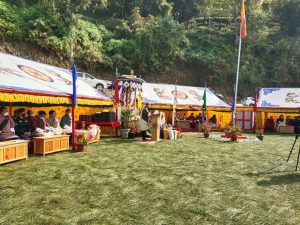
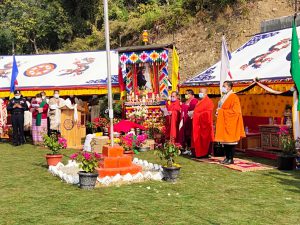
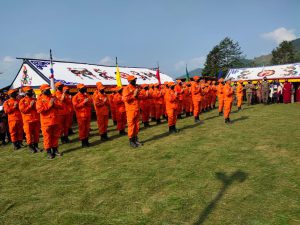
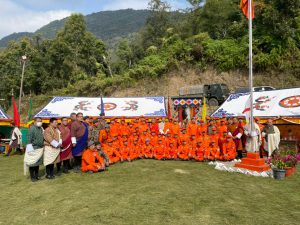
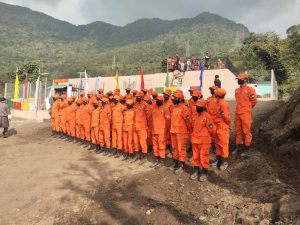
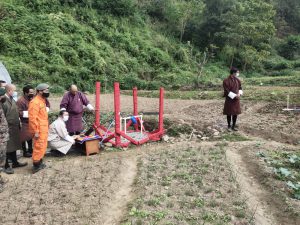
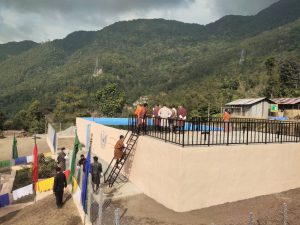
The overwhelming wave of volunteers for the water projects followed an inspirational Address by His Majesty The King to the nation on 12 September 2020, calling on our youth to engage meaningfully in the process of nation-building amidst the COVID-19 pandemic. One of the main ways highlighted during the Royal Address was the potential for the youth to develop water projects considering the importance of a safe and reliable water supply for the people and the nation.
In Semjong, over 50 De-suup volunteers, under the command of Lt. Tshering Dorji from RBA and technical supervision of Project Engineer Tshering Wangchuk from Tsirang Dzongkhag, implemented the integrated scheme which will provide drinking water to 72 households and dryland irrigation covering a command area of 210 acres, benefiting 571 people in Dangreygang.
The activities implemented under the pilot project includes watershed protection and bioengineering work along the pipeline, construction of integrated water intake and sand extrusion structures, a large reservoir tank (700,000 liters), 1.2 km of transmission main pipeline, 14 km of dryland irrigation distribution network, and piloting improved field application systems like sprinkler and drip irrigation. The pilot project was completed at a cost of Nu. 28.24 million.
One of the key highlights of the project is the piloting of an automation system to operate and monitor the scheme. Using the monitoring and control system developed by DRIVE (DHI Research and Innovation Venture Excellence) and the irrigation scheduling system developed by MoAF, the Semjong water supply scheme is the first large scale automated system where the operator and users can remotely check the availability of water in the reservoir, the flow of water in the network and control the inflow and outflow of water from the reservoir into the farmland which is divided into eight distribution zones. For this, different sensors and actuators have been installed for real-time monitoring and control, which can be visualized through a web application developed for the project. Relevant Gewog officials have been trained to operate the automated system which will improve water use efficiency. The entire system, which is cloud based, can be monitored and controlled from a mobile phone.
The De-suups gained valuable experience in construction planning and implementation of a fairly complex project with integration of technology unlike other water projects.
